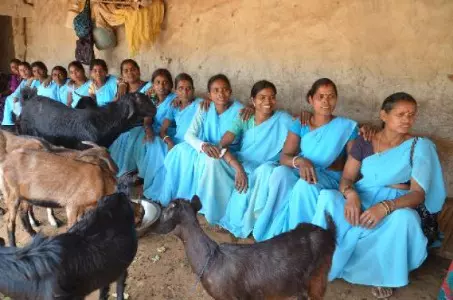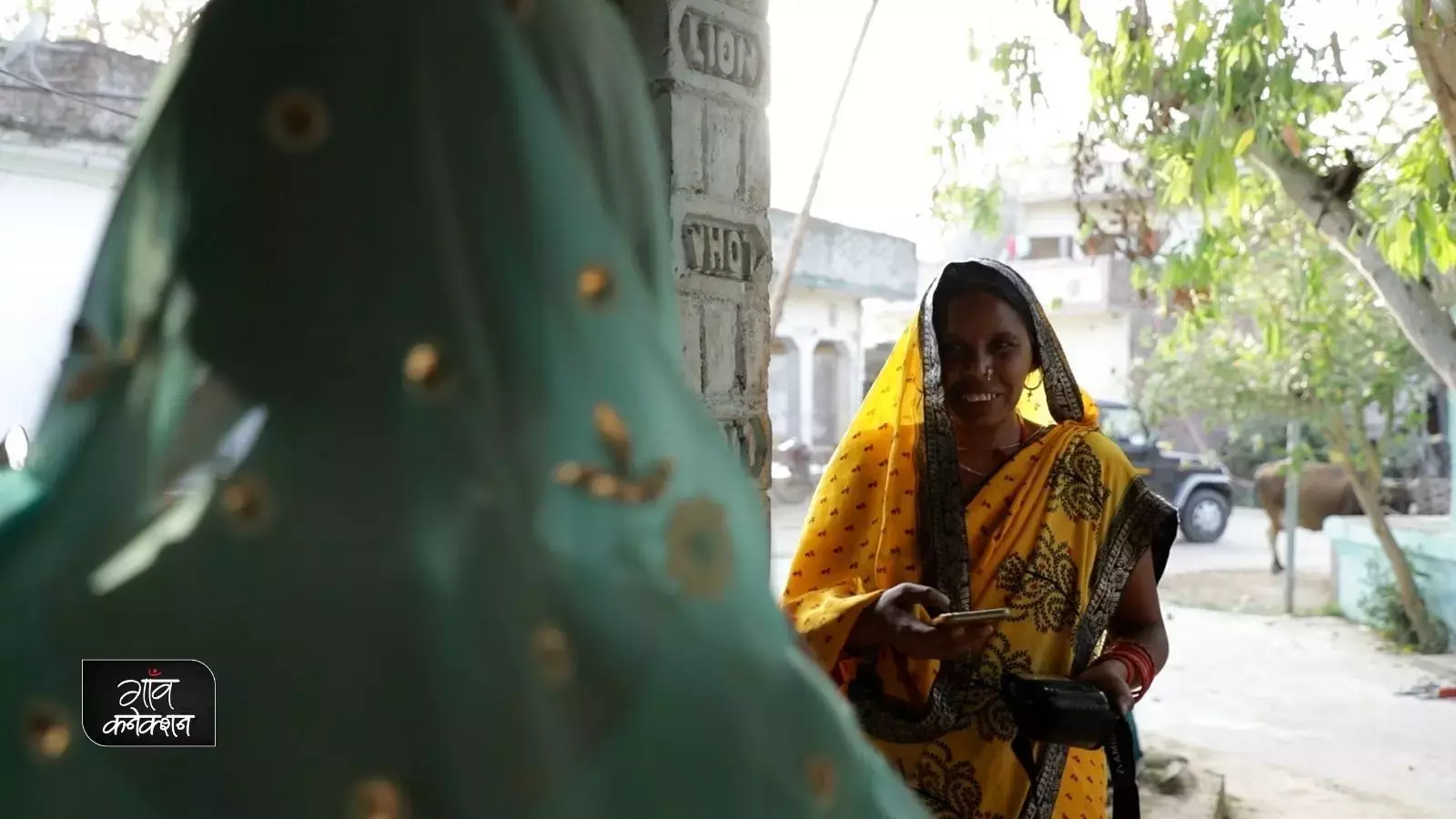A new study titled ‘Pathways to Resilient Livelihoods: Insights and Learning’ has documented the impact of the pandemic on informal sector workers, and how the livelihoods organisations have helped in building communities’ resilience and preparing them for such unprecedented times like COVID-19.
This May 2023 study, published by Ashoka Livelihoods for All and Sattva Consulting, explores the learnings, collaborations and innovations that lead to communities working as change agents and building back better and stronger livelihoods for the informal workers who work in rural and peri-urban areas. It also provides various insights on creating resilient, sustainable and equitable livelihoods.
For instance, the report delves in detail into the life of Kamal Jahaan from Sitapur in Uttar Pradesh. Jahaan works as a ‘Pashu Sakhi’ and her life has been transformed by Lucknow-based The Goat Trust, which works across the value chain of goat based products and promotes small livestock (goat/ sheep/ backyard birds rearing) based livelihood. The Trust provides motivation and trains women across multiple parameters to do the careful selection of right cadre of Pashu Sakhi, training of goatery and equipping women to contribute to the resilience of the communities.

The biggest change in the community has been the mindset shift, as goat rearers begin to respect
Also Read: Could the ongoing COVID-19 pandemic help rethink informal sector issues in India?
With the help of the The Goat Trust, Kamal Jahaan has been able to transform the quality of goats in her village and the neighbouring ones. Farmers who have never even considered vaccinating their goats are now adopting the new technique of ‘Artificial Insemination’. This new technique provides for goat rearing which in turns results in a higher weight of goats at birth. And in return ‘Pashu Sakhis’ like Kamal Jahaan also earn their livelihood.
The May 2023 report also documents experiences of Swayam Shikshan Prayog (SSP), a Maharashtra based non-profit that works on disaster relief. It aims to develop and strengthen a vast rural network of women’s collectives, women led enterprises and farmer-producer organisations. The non-profit provides access to skills and entrepreneurship opportunities, financial and digital literacy, and technology and marketing platforms that women need to succeed in remote areas.
Sanjeevani Mahor, a resident of Pimpaldari village, Maharashtra took up one-acre organic farming and alternative business opportunities under the guidance of SSP. She planted five vermicompost beds in the village and formed a producer group with 20 women farmers.
Consequently, Sanjeevni’s income has doubled and her income sources have diversified since she joined the SSP programme. She has also reached out to other women, trained them in organic farming, vermicomposting and natural fertilisers.
The insights in the report shows that, “institutions that were able to respond to communities during the crisis were the ones that invested in building both formal and informal networks and empowered local leadership.”
The report mentioned that COVID-19 caused catastrophic disruptions however the crisis also led to important collaborations and innovations.
Wonder women
Several organisations that have essentially worked with women in the pandemic are Udyogini, SSP, The Goat Trust, Drishtee and PRAN. These organisations have emphasised on the importance of working with women as agents of change in communities.
These organisations helped in creating avenues for income generation across diverse relevant activities. Livelihood organisations such as Udyogini adopted a “Basket approach”, which means that livelihoods are promoted in suitable and interrelated activities. It is especially important for the landless and offers them protection from several vulnerabilities that come in their way.
Also Read: ‘Almost 50% informal workers didn’t receive full wages in the second wave lockdowns’
Women’s participation also increased through livelihood models that were able to provide a safety net as the women navigated their way out through dealing with the challenges of reduced incomes and job losses in the time of Covid-19.

Women took up the challenge to fight against the pandemic through the training they received from various organisations.
“Women with greater access to resources, agency, mobility, training and participation in economic activities, were found to bring in additional income to the family, which helped in cases when the main source of income was impacted,” reads the recent report.
It goes on to mention that during the pandemic, women took up the challenge to fight against it through the training they received from various organisations, which in turn helped them to set up training centres and production hubs.
“Women were also able to run successful businesses in food, catering and textiles. Moreover, their increased confidence in managing the pandemic enabled them to start looking at mechanisation for scale, improving output 3 to 4 times by adopting the right machinery,” says the report.
The report also brings forth the importance of enabling livelihood ecosystems with infrastructure and networks. It talks about the organisations that took up the advantage of the government and community structures to implement their programmes to stay connected with communities and solve their issues.
Methodology of the study
The methodology used to conduct this study is a combination of primary and secondary methods to collect and synthesise data across the range of stakeholders that were involved through qualitative inputs. It is divided into three segments such as value chain strengthening, employability and skilling, and microenterprise development. The research methodology included desk-based research and some key interviews with livelihood practitioners or Ashoka fellows, livelihood experts and funders.
To read the full report ‘Pathways to Resilient Livelihoods: Insights and Learning’, click here.


















